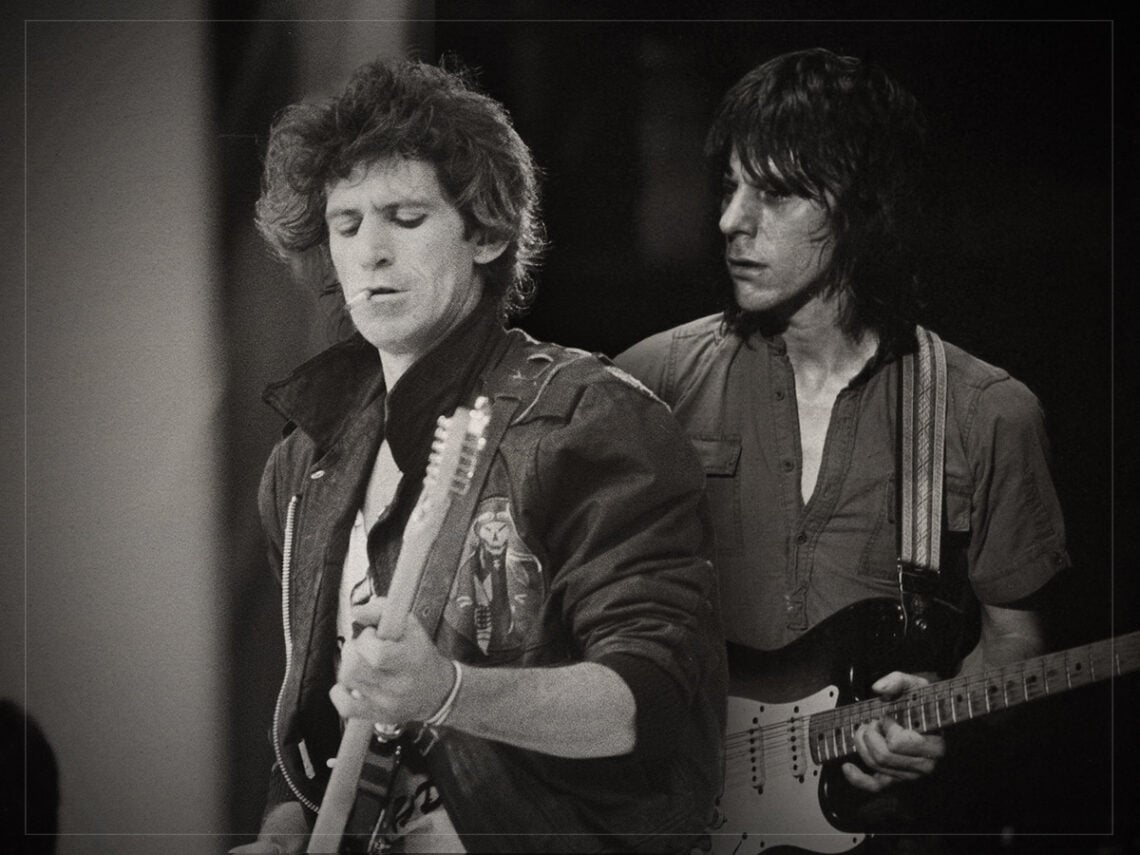
(Credits: Far Out / Chris Hakkens / Marcel Antonisse / Anefo)
Fri 31 October 2025 17:30, UK
While it was a decade of unmatched musical diversity, the truth is, the 1970s was the decade of the guitar.
While soul, disco and the early makings of hip-hop all introduced themselves in that decade, it was rock and roll that dominated. Building off the back of what The Beatles and Bob Dylan achieved in the 1960s, bands like The Rolling Stones, Led Zeppelin and Black Sabbath protected rock’s position on the musical throne, through power, opulence and innovation.
Within that world existed some players who became icons, capitalising on this insatiable appetite for charismatic rock, saw guitarists stepping forward into the limelight and creating an era that wasn’t all about the vocalist. Now people were queuing up to buy tickets for guitar-led gigs, where a riff or a solo would be the star of the show, and among them were The Rolling Stones’ Keith Richards and Jeff Beck, who became somewhat of the de facto leaders of the 1970s, representing everything that fellow musicians would admire.
While their position in the music industry in that decade felt entirely exciting and futuristic, the truth is, their approach was rooted in tradition. They were classic guitarists personified, who were building off the platform built by blues icons from the previous two decades, and more specifically, one guitarist in particular.
“There was Scotty Moore from Elvis’ band. ‘Hound Dog’, ‘Rock Around the Clock’, there is an amazing solo in that,” Beck proudly claimed when asked about his influences. It was clear that no matter how much further popular culture and music had progressed, the trail that Elvis Presley and his band blazed in the 1950s hadn’t been forgotten.
But while Moore’s solo in those songs sparked curious intrigue in Beck, it was his entire style of playing that won the heart of Keith Richards. For the Stones guitarist, Moore represented something larger than a stylistic influence, providing Richards with the reason for playing.
“Scotty Moore was my hero,” he explained, “There’s a little jazz in his playing, some great country licks and a grounding in the blues as well. It’s never been duplicated. I can’t copy it. The closest I came was tracks like ‘Parachute Woman’, where I fooled around with echoes. Those early Elvis recordings got me interested in the possibility of the studio.
“The first one I got had some of the [Elvis at] Sun stuff: ‘Baby Let’s Play House’, ‘Milkcow Blues Boogie’. But ‘Mystery Train’ is the apex. It’s just Bill Black on bass, Elvis on acoustic, and Scotty. No drums. And it’s just the most amazingly huge sound. Elvis didn’t age as well as he should have, but at 19, 20 years old, it was mind-boggling.”
Elvis Presley was the star of the show for good reason: his charisma and musicality combined wholly revolutionised what it meant to be a rock star, but as Richards rightly points out, Moore and the rest of the band were key players in facilitating that. If his enthusiasm to make that point proves anything, it’s that most of the music we treasure now might not have existed without Moore.
Related Topics

